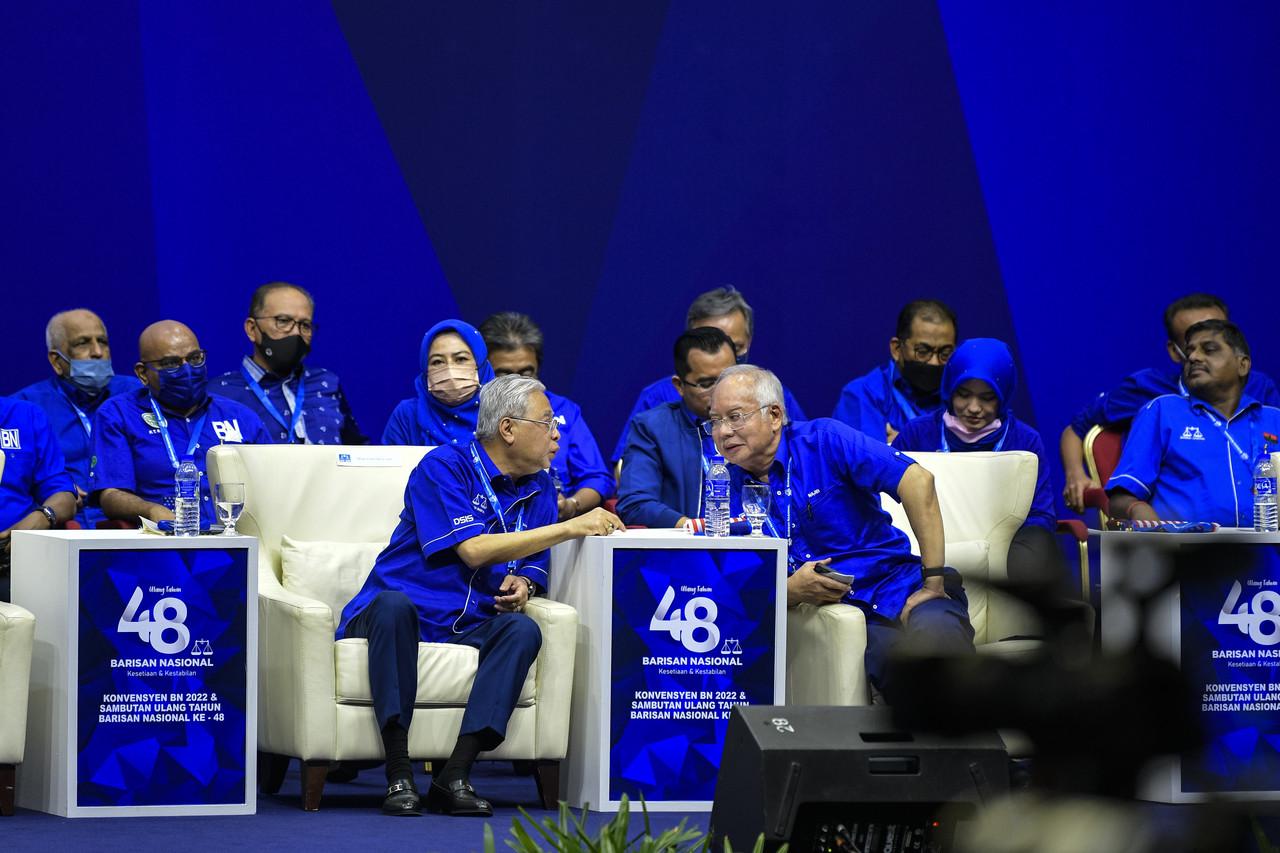Marching orders for Najib loyalist a sign of cracks in Umno, say analysts
They say Barisan Nasional is looking to revamp its image, with an eye on recapturing Selangor ahead of the 15th general election.
Just In
The recent sacking of Najib loyalist Isham Jalil from his position as Selangor Barisan Nasional (BN) information chief appears to signal cracks within Umno, analysts say, even as speculation continues on the date of the 15th general election (GE15).
Political observer Hisomuddin Bakar said Isham, the former special officer of Najib Razak, was part of the faction loyal to Umno president Ahmad Zahid Hamidi.
“His sacking means that he will have to look for other ways to contest in Selangor,” Hisomuddin, of electoral think tank Ilham Centre, told MalaysiaNow.
He added that Isham’s sacking came as no surprise as his statements should be in line with those of leaders in Selangor.
“This may damage his reputation in the state,” he said.
Isham, the former special officer of Najib Razak, was appointed as Selangor BN information chief in May 2020. His services were terminated effective June 3.
Selangor BN secretary Mohamad Satim Diman, who issued the letter of termination, said the decision was made through discussions with the coalition chairman, according to Clause 23 of the BN constitution which states that there are no provisions for the chairman of the state BN committee to appoint an information chief.
Isham’s name had been bandied about during the last general election as a possible candidate for menteri besar in Selangor.
He was also rumoured to be contesting the Paya Jaras state seat although talk of this never materialised.
Analyst Kartini Aboo Talib expects the “pro-Najib” faction in Umno to clash with the camp that wants reform and rejects the court cluster – a euphemism for a group of Umno MPs led by Zahid and Najib who are facing a string of criminal charges in court.
“Isham’s rejection by Selangor BN shows a clear desire for a revamp of Umno’s image and integrity,” Kartini, of Universiti Kebangsaan Malaysia, said.
“For BN to move forward, putting young and qualified leaders in the spotlight will benefit it in the long run.”
Analysts generally agree that Umno is now split into two camps: the court cluster and the so-called Putrajaya cluster, that is the Cabinet members and Umno leaders backing Prime Minister Ismail Sabri Yaakob.
Ismail, an Umno vice-president, has been under pressure to dissolve Parliament in order to pave the way for GE15.
Umno at its recent special general assembly also amended its constitution to postpone party elections, a move likely to benefit Zahid and the court cluster.
Kartini said Isham’s sacking was part of a larger strategy for BN to take back Selangor – a largely urban area dominated by the elite and middle-class which fell to the opposition in the 2008 general election.
Pakatan Rakyat, the opposition coalition at the time, made history by toppling BN in Malaysia’s richest state which has remained under opposition rule ever since.
Analyst Oh Ei Sun said the factions in Umno were doing “house cleaning” amid the continued tussle for power, adding that Isham’s dismissal as Selangor BN information chief might be the first of many “purges” by either camp.
“In any case, it demonstrates that the mainstream faction, led by Zahid and Najib, does not exercise absolute control over the party, especially at the state level,” he said.
“But as far as Selangor is concerned, the allegiance of Noh Omar, and not other lesser figures, is key.”
Oh, of the Singapore Institute of International Affairs, said the dismissal also showed that “young upstarts” in parties with long histories were often no match for what he described as “the political ruthlessness of old-timers”.
For Hisommudin, though, Isham’s sacking does not necessarily signal the end of his political career.
“Given the dynamics of Umno’s internal politics, anything could happen,” he said.
“It’s just a question of whether his dismissal will widen the rift in Umno. This is the real issue behind Isham’s marching orders.”
Subscribe to our newsletter
To be updated with all the latest news and analyses daily.
Most Read
No articles found.
